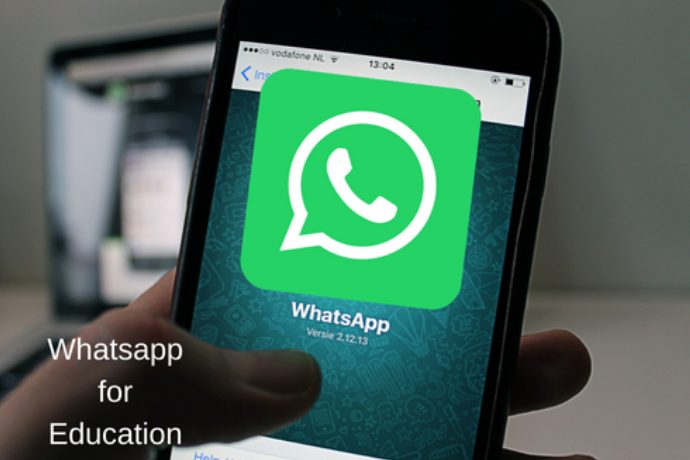
Whatsapp for Education
Internet technologies are shaping the lives of people in terms of communication via social networks. The ease of communication at an individual level makes it quite convenient to use for people at a young age. Amongst online social networks, Whatsapp has literally taken over our lives in terms of information sharing.
In the field of education student-to-student dialogue is now less face-to-face and more in an online setting. In most developed nations, online communities are a common place for students and teachers to discuss educational matters. It enhances learning via online collaboration. However, it has its drawbacks also.
- People can often suffer from frustration when they do not get a reply e.g. why hasn’t the professor replied yet, why has the approval not come through yet?
- There is no eye contact and you cannot hear the tone of voice and/or observe body language.

Higher education professionals need to create an environment of teamwork and collaboration to address these issues. Further students should be made to understand that students from around the globe come from different cultures and backgrounds and therefore communicate differently.
When students from around the globe work on the same assignment, they interact and share knowledge with each other and thus a greater variety of perspectives is made available. According to Peter Kahn, director of the Centre for Higher Education Studies at the University of Liverpool, where he is also the director of studies for the university’s online professional doctorate in higher education, “Supportive infrastructure, diverse perspectives, and the individual commitments and expertise of learners – all of these need to come together if higher education is to respond to grand challenges that require extensive collaboration.”
A study was conducted by Levent Cetinkaya, “The Impact of Whatsapp Use on Success in Education Process” and was published in the “International Review of Research in Open and Distributed Learning, Volume 18, Number 7” (2017). The research concluded that the use of Whatsapp in the educational process should be encouraged as a supportive technology.
Whatsapp plays an important role in the lives of young individuals. Hence it can support their education. For example, in many private schools in Pakistan, students as young as ten year olds use their parent’s (especially mother’s) mobile phones to contact school mates for homework, test or other school related information. Even the school prefers informing parents about events, updates and even emergency situations via Whatsapp messaging. Many mothers form Whatsapp groups to keep in touch about their child/children’s school activities. It’s free and almost every other person in Pakistan has it. Thus it has become a popular tool for keeping in contact for education purposes.
In many countries, school management communicates with parents with the help of Transactional Bulk SMS. Majority of them are using Whatsapp marketing software in order to inform parents about the admission process, application, placements etc. Holidays due to strikes, natural disasters, political unrest, etc are announced by schools via bulk sms services.
Anders Krohn, Adrian Franklin and Oliver Nicolini created Aula at the University of Oxford in 2106. The platform aims at offering an engaging and interactive digital space to students, staff, and educators. The School of Media at Ravensbourne, a creative arts university in London, Royal College of Art, the University of Nottingham and the University of Derby are amongst the users of Aula and have found it to be very useful for their students. Find out more about it:
https://aula.education/
So is your institute taking advantage of these softwares or not? Whatsapp is free and commonly used by people of all ages, income groups, education backgrounds, and professions. Research a bit online and find out how it can benefit you as an institute, especially in terms of staying connected with school staff, students and parents.

